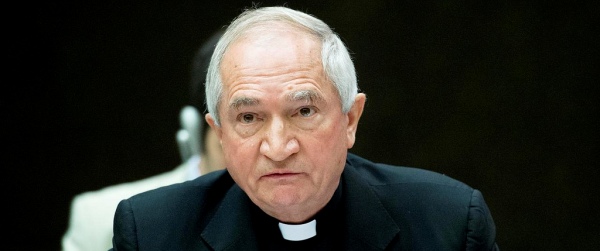
On Tuesday September 10th, the Permanent Observer of Holy See to the United Nations in Geneva, Msgr. Silvano M. Tomasi, spoke about children and armed conflicts during the 24th Meeting of the United Nations Human Rights Council, that plays at this time. Here is the Archbishop’s speech.
Mr. President,
The scourge of recruiting child soldiers today continues in several countries, with an estimated 250,000 children fighting all over the world, a substantive percentage of whom are girls. Most are recruited by force and some lured by false promises of an escape from extreme poverty and the assurance of a daily meal. They find themselves sexually exploited, forced to kill, deprived of basic human rights, and robbed of a normal future. Child soldiers remain a challenge for the international community, still struggling to protect these children from the impact of violence. As the Special Rapporteur indicates, it is urgent to stop recruitment by both governmental and non-governmental groups so that these children may be able to overcome the difficulties of their environment and have access to education and a normal family life.
The Holy See is very much aware of these facts and emphasizes the importance and essential social value of a healthy childhood since, in fact, “[n]o country on earth, no political system can think of its own future otherwise than through the image of these new generations.” (John Paul II, Address to the General Assembly of the United Nations, 2 October 1979)
Recruiters thwart the development of these children and rob them of the right to learn peace as a way for productive conviviality in society and the right to enjoy the family as the natural school for peace and healthy growth.
International law provides special protection for children, but the gap between legislation and implementation remains very wide. Thus we see that these children are abused and maimed; even when they are lucky enough to survive, a psychology of hate is inculcated in their hearts. Respect for the Convention on the Rights of the Child and its Optional Protocol on the Involvement of Children in Armed Conflict (2000) can go a long way to remedy these evils, and ratification of this Optional Protocol should become a priority for those States that have not already taken such action.
The civil and religious organizations that work for the full implementation of these instruments deserve commendation and support. In fact, they show, through their action, the recognition of the equal dignity of children as human persons created in the image of God.
On such foundation, it is possible to devise new and creative ways to prevent forced or voluntary recruitment of children into armed forces and to develop new programs for their de-mobilization and rehabilitation. A critical component of such programming would be the establishment of transitional centres where children could be prepared for re-integration into family life and mainstream society. On its part, the Catholic Church, as do other religious and voluntary organizations, is engaged in the provision of specialized support to the survivors of such violence, including shelter, food, clothing, education, as well as counselling and other trauma healing services, spiritual accompaniment, and reconciliation with families.
The link between extreme poverty and social deprivation facilitates conflicts and the forced conscription of children into armed groups. Thus the building of a protective environment for children requires economic and social development and, above all, access to education and the formation of public opinion that values children and is committed to their future. Some practical steps to achieve these goals should include: monitoring the quantitative phenomenon of child recruitment, scrutinizing the degree of respect for international and humanitarian law, raising the minimum age for recruitment by States to eighteen years, providing children with the knowledge, skills and technical capacities for eventual employment, and strengthening the bonds of family life.
Mr. President, Society should not allow the talents and energies of children and young people to be dispersed in pursuit of destructive goals but rather assist that they be focused on the common good and on constructing a culture of peace, dialogue and solidarity. Indispensable to achieve the elimination of the social wound of child soldiers is the work and achievement of peace. In such a pursuit, “religions can and must offer precious resources to build a peaceful humanity, because they speak of peace to the human heart”.(Pope Benedict XVI, Pastoral Visit to Naples, and Address to Heads of Delegations Taking Part in the International Encounter for Peace, 2007).